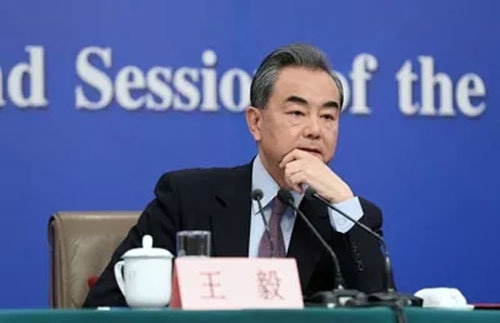China’s cultivating years-long diplomats contrasts with Korea’s short-term practice
China’s cultivating years-long diplomats contrasts with Korea’s short-term practice
Posted April. 05, 2019 08:13,
Updated April. 05, 2019 08:13

A newly appointed Chinese diplomat whom I recently met said that she was looking forward to build expertise in Japan. The bright-eyed diplomat had majored in Japanese literature and studied in Japan and her strong passion could be felt.
Another diplomat explained that “In China, diplomats are recruited according to their regional expertise and language, for example, there are positions allocated for Korea and Japan.” This means that professional fields of expertise are determined from the beginning. Chinese diplomats who begin their career in Korea are assigned to positions in the Chinese embassy in Korea, Chinese embassy in North Korea and Korean affairs at the headquarters of the Foreign Ministry.
“If I don’t hear from a Chinese diplomat of Korean affairs for some time, s/he is assigned to the post in North Korea,” said a Korean diplomat.
I met with former Chinese Ambassador in Korea Ning Fukui (post period: 2006-2008) in a forum held in Beijing in December last year. I had met him only once, but he came up to me and greeted me warmly saying “What are you doing?” in Korean. At the age of 64, he is said to have many old friends in Korea and currently heads the Bureau of Korean Affairs of the Chinese Foreign Ministry. He had spent most of his 43-year career handling Korean affairs. He went to North Korea for the first time in 1972 to study, spent four years studying and became fluent in Korean.
The successor of previous post in Korea is Cheng Yonghua, who is the incumbent Chinese ambassador to Japan. He had been ambassador for nine years and lived for 25 years in Japan. One of the candidates for his post is Vice Minister and Special Representative for Korean Affairs Kong Xuanyou, has worked in Japan for 12 years.
It was at the press conference held by State Minister of Foreign Affairs and Vice Foreign Minister Wang Yi on March 8 when a Japanese reporter asked a question related to President Xi Jinping’s visit to Japan. “China-Japan relations had always been the hot topic for discussion at press conferences,” he said. “Questions on this topic were usually asked at the beginning, but I see that today it was brought up last. This means that the relations have already grown stable.” It was an impressive way of expressing China’s intention to improve the relations.
The post for the director of the Inter-Korean relations, Japan, Mongolia Affairs Department under the Chinese Foreign Ministry’s Asia Bureau was previously held by a Korean expert, but was recently replaced by an expert of Japanese affairs. This reflects China’s strategic preparations to assign seasoned experts in response to warmer relations with Japan.
This is a stark contrast to Korean diplomats assigned to ambassador posts for China, the U.S., and Japan, who hardly have relevant background as politicians and professors and recently scurrying home after their one-year assignment.
Wan-Jun Yun zeitung@donga.com
Headline News
- Joint investigation headquarters asks Yoon to appear at the investigation office
- KDIC colonel: Cable ties and hoods to control NEC staff were prepared
- Results of real estate development diverged by accessibility to Gangnam
- New budget proposal reflecting Trump’s demand rejected
- Son Heung-min scores winning corner kick







